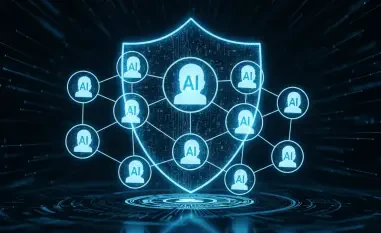AI in Cybersecurity
In today's fast-paced digital landscape, businesses are increasingly turning to autonomous systems to streamline operations, with agentic AI emerging as a game-changer in organizational efficiency, promising to revolutionize workflows across various industries. However, a staggering reality

In an era where digital transformation dictates the pace of business, the alarming rise in cyber threats targeting identities has become a pressing concern for enterprises worldwide, making it imperative to prioritize robust security measures. Imagine a scenario where a single compromised

Setting the Stage for a Cybersecurity Revolution In an age where cyber threats strike with alarming speed and sophistication, the cybersecurity market faces a daunting challenge: over 40,000 new software vulnerabilities were identified in the past year alone, with organizations often taking weeks

In an era where digital transformation dictates the pace of business, the networking landscape is experiencing a seismic shift driven by automation and programmability, fundamentally altering how organizations connect their people, applications, and data. Once reliant on painstaking manual

In a digital landscape where trust is both a currency and a target, New Zealand law firms find themselves at a critical crossroads, facing risks that could undermine their very foundation. Imagine a single email, seemingly from a trusted client, diverting millions in trust account funds to a

Overview of Malaysia's Tech Landscape Imagine a nation where digital transactions are as commonplace as morning coffee, yet the specter of cyber threats looms over every click, placing Malaysia at a critical juncture in 2025 as it navigates a rapidly transforming tech landscape. The digital














